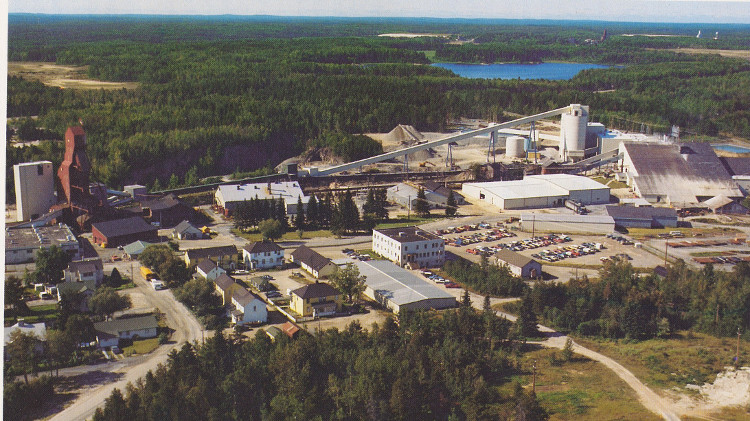 The Extractive Sector Transparency Measures Act came into force last June, requiring mining and oil and gas companies of a certain size listed in Canada to disclose payments made to all governments in Canada and abroad. Rules and systems like this play a vital role in improving the governance of mining, both in advanced and developing countries. Transparency helps prevent problematic mining codes and contracts, and open data can help host country stakeholders to push for better management of natural resource extraction.
The Extractive Sector Transparency Measures Act came into force last June, requiring mining and oil and gas companies of a certain size listed in Canada to disclose payments made to all governments in Canada and abroad. Rules and systems like this play a vital role in improving the governance of mining, both in advanced and developing countries. Transparency helps prevent problematic mining codes and contracts, and open data can help host country stakeholders to push for better management of natural resource extraction.
It is striking, however, that to this point most of the attention of civil society when it comes to economic impacts of mining has been focused exclusively on tax payments. While important, these are not the only, or even the largest, economic contributions mining operations make to host economies.
In most cases, companies actually spend more money on the procurement of goods and services than taxes, wages and community investment combined. The World Gold Council surveyed its 18 member companies, which operate in over 40 countries, and found that in-country procurement for 2013 accounted for 71 per cent of all economic value distributed in host countries by member company sites.
So, if we really want to ensure mining has a positive impact on host economies, and for mining companies to obtain their social license to operate, miners need to optimize their local procurement strategies.
Proper management of processes like local procurement require proper measurement. For three years we at the Mining Shared Value initiative of Engineers Without Borders have been tracking how Canada and the world’s largest mining companies report on local sourcing of goods and services. We have seen a steady increase in the number of companies reporting more detail on their programs, as well as statistics that show how much of their procurement is going to local suppliers. Kinross Gold, Anglo American and Cameco are among those companies reporting in a way that informs better decision-making by all stakeholders involved.
If companies report more on local procurement, it will better inform local stakeholders making decisions on how to work with them. For example, if mining companies report on the various programs they are using (supplier development for example), it informs local chambers of commerce, NGOs, training institutes and financing institutions on how they can support those programs.
Better reporting on the volumes and types of goods and services a mining operation buys could also help inform local governments and businesses on what they should focus on supplying, rather than guessing at which sectors to invest in.
It is also worth noting that most countries creating new mining codes are now including local content regulations. Improvements to reporting will help inform company engagement with governments on these new codes, and help prevent governments from imposing unrealistic and arbitrary requirements. By better measuring and presenting the exact nature of their procurement, companies can work with governments to help create effective regulation. If companies are not able to demonstrate and explain the nuances of their sourcing, they risk government imposing regulations that have little foundation in reality.
Unfortunately, many companies do not report on local procurement and have little in the way of sophisticated management systems. In addition, even for companies that do a good job of tracking their efforts to buy locally, there are no standard metrics for them to use and many companies have to re-create the wheel to make their own systems.
To address this, we are working with the German development organization G.I.Z. to provide a standard for mining companies to report on local procurement of goods and services. The goal of this new system will be to help companies manage their economic impacts with the most effective indicators to inform decisions, and help host countries better understand how they can work with mining companies to increase local procurement through collaboration.
Both mining companies and host governments as well as the communities they interact with need metrics to guide their decision-making. These measurement systems must capture nuance, provide accountability and help us understand how the private and public sectors can support inclusive development.
Jeff Geipel is venture leader for Mining Shared Value at Engineers Without Borders Canada.
Got an opinion on one of our columns? Send your comments to editor@cim.org.




 The Extractive Sector Transparency Measures Act came into force last June, requiring mining and oil and gas companies of a certain size listed in Canada to disclose payments made to all governments in Canada and abroad. Rules and systems like this play a vital role in improving the governance of mining, both in advanced and developing countries. Transparency helps prevent problematic mining codes and contracts, and open data can help host country stakeholders to push for better management of natural resource extraction.
The Extractive Sector Transparency Measures Act came into force last June, requiring mining and oil and gas companies of a certain size listed in Canada to disclose payments made to all governments in Canada and abroad. Rules and systems like this play a vital role in improving the governance of mining, both in advanced and developing countries. Transparency helps prevent problematic mining codes and contracts, and open data can help host country stakeholders to push for better management of natural resource extraction.